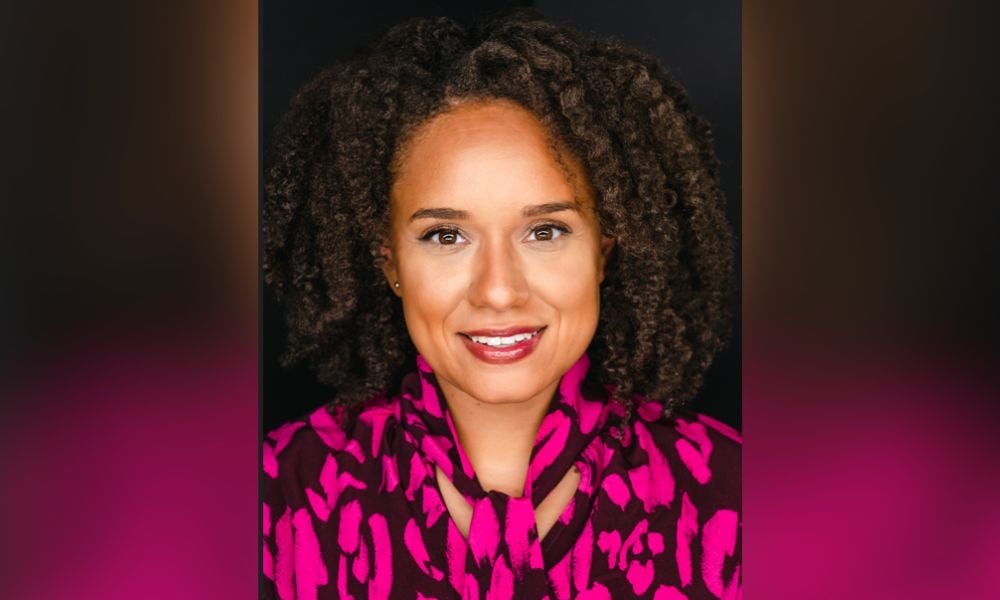
'DEI ebbs and flows, it's ever evolving with changing milestones'

For Amie Kromis, diversity, equity and inclusion (DEI) has always been in her blood. Now as the DEI director at global health company Essity, she tells HRD that it was her grandparents that started the diversity theme in their family.
“My grandmother grew up in segregated Birmingham, Alabama, but was of working age when President Lyndon B. Johnson issued E.O. 11246 for all government contractors and subcontractors to ensure equal opportunity for employment and contracting opportunities for women and minorities,” says Kromis.
By being the only woman, and Black woman, in her workplace, Kromis’ grandmother was bestowed the task of understanding and implementing positive movement to diversify the workforce and subcontractor base. She went on to build a legacy of DEI through economic development and still works in the space to this day.
“Although I had a DEI force in my family, my interest peaked when Emmy and Peabody award winning journalist Soledad O’Brien released Black in America - and later Latino in America. Her ability to uncover America’s complex fascination with race and ethnicity somehow sparked a fixation in my mind that I could achieve a full-time career in DEI. As I explored this fixation, I was told by many corporate and non-profit leaders that my DEI desires were not possible and that I should set my sights somewhere else, somewhere more realistic.”
However, in the final semester of her undergraduate career at Southern Methodist University, Kromis interned at Southwest Airlines HQ in their newly created DEI department.
“Since then, I’ve been blessed to work in DEI – now, for more than 10 years across industries including health and hygiene, aviation and construction. In my role at Essity as DEI Director, North America, I lead the work to advance Essity reaching its DEI ambitions in the U.S. and Canada and also support business leaders across these regions to understand their roles in this effort to help them champion DEI issues among their teams.”
At Essity, Kromis leads the diversity function for North America. With her particular love of equity and inclusion, Kromis has spearheaded the DEI revolution, helping Essity reach new heights of inclusion.
“Essity is in the infancy of our DEI journey, but at the core is the belief that DEI is the right thing to do, smart thing to do, who we are, and who we want to be as a company,” Kromis tells HRD. “In 2021, we announced DEI targets including an inclusive work environment for all, balanced gender representation in leadership, and an accelerated representation of under-represented groups.”
To achieve their goals and set a strong foundation, Kromis works in alignment with Essity's comprehensive and global DEI strategy and roadmap to guide all of the organization's actions and initiatives to ensure DEI is embedded in all aspects of the organization. Kromis tells HRD that Essity initially conducted a series of DEI workshops for all management teams and in many offices across the globe.
“These insights continue to help us a build a relevant infrastructure for DEI. Our strategy focuses first on excelling DEI in our workplace so we can be good stewards of DEI in the marketplace, as DEI is important for our customers, consumers, and a more sustainable society.”
Courageous Conversations are also a pivotal part of Essity’s strategy. Topics discussed include gender, race and ethnicity, ageism and more. As Kromis says, the hope is participants leave these discussions with practical tools and insights to navigate conversations around these topics and to become agents for positive change within the organization.
“When you think of Essity, we are a global company,” she says. “The breadth of impact we have at Essity because we’re in over 150 countries, and the professional development that can take place through that, is beyond unique and rewarding. There’s always something new to learn, embrace and put into action when you’re a part of a European headquartered company.”
A focus on diversity isn’t something new, however the importance of comprehensive DEI strategies can’t be understated in the current socio-economic climate. All this added pressure on HR leaders can create even more burnout for an already overworked function, leading to diversity fatigue for many.
And navigating DEI fatigue has become a common challenge for organizations and leaders, leading to stalled DEI progress at some organizations.
“DEI work can be emotionally and mentally taxing, which is why it is essential to properly support the function, maintain momentum and create lasting change,” says Kromis.
“DEI must be a leadership imperative with the acknowledgement and understanding that DEI will be a difficult, yet worthy, journey. There is this misconception that DEI is magical and comes with ease. However, it is change management to the tenth power. We’re changing how we see things and how we work. When we honor the fact that DEI requires a level of rigor, we see a higher level of commitment from individuals.”
As an expert in this space, Kromis advises organizations to ensure the investments they’re making matches the rhetoric. DEI efforts need to be well-resourced because we are well beyond solidarity statements.
“Like any other business imperative, I recommend connecting the DEI journey to your company purpose, business performance goals, setting measurable KPIs, and putting accountability systems in place.
“DEI ebbs and flows, it’s ever evolving with changing milestones. I continue to learn every day about this work and how to approach different elements of DEI. A key characteristic of inclusive leadership is to realize that you won’t have all of the answers – and one should expect and embrace the unknown and uncertainty.”